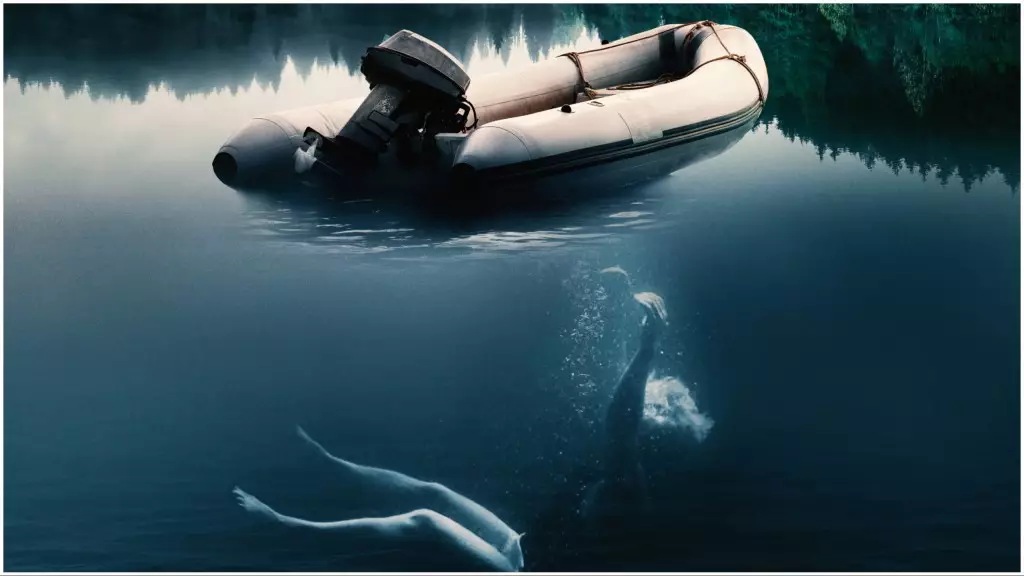The true crime genre has steadily captivated audiences, drawing them into the depths of human emotions intertwined with the stark realities of criminal justice. “In Cold Water,” an upcoming documentary series on Prime Video and Sky New Zealand, explores such dynamics through the tragic case of Laura Letts-Beckett. Her drowning in the Canadian Rocky Mountains during a fishing trip frames the central narrative, with her husband, Peter Beckett, emerging as the primary witness—yet, also the accused. This intersection of personal loss and alleged crime provides fertile ground for a discussion about the complexities of guilt, betrayal, and the human condition itself.
Set against the haunting backdrop of the Rockies, the series not only retraces the events leading to Letts-Beckett’s death but also delves into the psychological limbo that ensues for those left behind. The striking imagery of cold, unyielding water symbolizes both the beauty and danger inherent in nature, mirroring the tumultuous emotional landscape navigated by Peter Beckett throughout the ordeal. With the combined efforts of Canada’s C3 Media and New Zealand’s AJP Productions, the project is distinguished by its multifaceted approach to storytelling.
In the series, Peter Beckett recalls the devastating moment of his wife’s death—a solitary account punctuated by vivid imagery, such as the sight of her bright yellow shorts floating in the water. His desperate attempts to save her cast him as a tragic hero, yet the narrative quickly takes a darker turn as the audience learns of his subsequent arrest for murder. The juxtaposition of his poignant recollections and the chilling reality of a murder charge raises critical questions about memory, perception, and the reliability of personal accounts in the wake of trauma.
Retired Canadian police officer Jacquie Olsen’s skepticism introduces an important critical lens. Her assertion that Beckett’s story “did not make sense” compels viewers to reconsider the ease with which emotional testimony is often accepted. By challenging Beckett’s version, Olsen not only adds depth to the investigation but also invites the audience to reflect on the fragile nature of truth itself, particularly when emotions run high.
Pablo Salzman, president of C3Media and an executive producer of the series, emphasizes the emotional resonance of true crime documentaries. Salzman asserts that these stories achieve more than mere entertainment; they delve into the darker aspects of human motivations and the quest for justice. Indeed, “In Cold Water” exemplifies this, confronting viewers with the uncomfortable realities of trust and betrayal.
As audiences dive deep into the intricacies of this case, they are prompted to confront moral ambiguities—challenges that reflect contemporary societal dilemmas. What does it mean to trust someone who becomes embroiled in a crime? How can one reconcile personal grief with the pursuit of justice? The inherent complexity of these questions forms the crux of compelling storytelling that captivates and unsettles viewers alike.
An intriguing facet of the production is the connection formed between the creators and the subject matter, described by Salzman as an instance of serendipity. The presence of a producer with personal ties to the story adds authenticity and emotional weight, enhancing the overall narrative. This intimate connection not only amplifies the storytelling’s potency but also serves as a reminder of the emotional truths that underlie true crime narratives.
With the series set to premiere on November 12, anticipation is palpable. It is clear that “In Cold Water” is more than a recounting of an alleged crime; it is an exploration of the human psyche, the fragility of relationships, and the imperative pursuit of truth. As the documentary unfolds, it is poised to engage audiences on multiple levels, compelling them to reconsider their own preconceptions about guilt and innocence in the profoundly convoluted realm of human conflict.
In a world inundated with sensationalist true crime tales, “In Cold Water” aspires to redefine audience engagement, challenging viewers to navigate the murky waters of personal grief, cultural narratives, and the collective quest for understanding in a deceptively simple story with deep, dark undercurrents.
